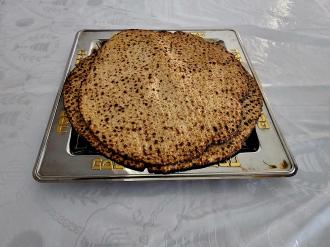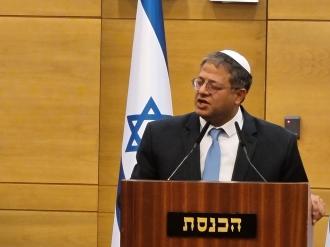JERUSALEM (VINnews) — Rabbi Adin Steinzaltz, the author of the renowned Steinzaltz Talmud and numerous other books on all facets of Jewish literature, passed away in Jerusalem Friday at the age of 83.
Born in 1937 in Jerusalem to a secular family, Rabbi Steinzaltz was sent by his father, a communist Zionist who believed in giving a broad Jewish education to his children, to a religious school where he gradually became religious and moved towards the Chabad Chasidus under the influence of his friend and mentor, Rabbi Shmuel Elazar Halperin, a descendant of the founder of Chabad. Rabbi Steinzaltz was also influenced by the Rabbi of the Katamon neighborhood where he lived, Rabbi Dov Ber Eliezrov, who was also a Chasid of Chabad. Rabbi Steinzaltz studied at the Tomchei Temimim yeshiva in Lod and also completed his academic studies in mathematics, physics and chemistry. He worked as an educator and as the principal of a school in the Negev.
In 1965 Rabbi Steinzaltz, whose motto was “let my people know” (a paraphrase on “let my people go”) and who dreamed of making the Jewish bookcase accessible to all who wish to study Jewish sources, established the Israel Institute for Talmudic Publications, which later became the Steinzaltz Center.
Steinzaltz embarked on his monumental translation and explanation of the entire Talmud. He added commentaries, additional notes and realia to the Talmudic format in order to add background for students who could not grasp the content of the Talmud on their own. The Talmud commentary took 45 years to complete and has since been translated into English, French, Russian and Spanish.
In an attempt to broaden public knowledge on Torah topics, Steinzaltz would give weekly seminars which usually lasted until 2:00 in the morning and attracted prominent politicians, such as former Prime Minister Levi Eshkol and former Finance Minister Pinhas Sapir.
During a prolific writing career which spanned more than five decades, Steinzaltz published some 60 books on the entire gamut of Jewish literature. Steinzaltz authored a seminal book on Kabbalah, “The Thirteen-Petalled Rose” which was first published in 1980 and now appears in eight languages. He also wrote hundreds of articles on subjects including Talmud, Jewish philosophy, sociology, historical biography, and philosophy. His books have been translated into 60 languages and he received numerous prizes including the Israel Prize in 1988 and the President’s Citation in 2012. Steinsaltz was also presented with the 2012 National Jewish Book Award in the category of Modern Jewish Thought & Experience by the Jewish Book Council for his commentary, translation, and notes in the Koren Babylonian Talmud, which has now been completed.(English edition)
In 2017 he completed his commentary on the Torah as well as the prophets and recently completed a commentary on the Mishnah. He also authored three books on the Tanya- the seminal Chasidic work by Rabbi Shneur Zalman of Ladi, the founder of the Lubavitch dynasty: “Opening The Tanya”, “Learning the Tanya”, and “Understanding the Tanya.”
Continuing his work as a teacher and spiritual mentor, Steinsaltz established Yeshivat Mekor Chaim alongside rabbis Menachem Froman and Shagar in 1984, and Yeshivat Tekoa in 1999. He also served as president of the Shefa Middle and High Schools. He has served as scholar in residence at the Woodrow Wilson International Center for Scholars in Washington, D. C., and the Institute for Advanced Study in Princeton. His honorary degrees include doctorates from Yeshiva University, Ben Gurion University of the Negev, Bar Ilan University, Brandeis University, and Florida International University. Steinsaltz also served as Rosh Yeshiva of Yeshivat Hesder Tekoa.
Being a follower of the Lubavitcher Rebbe, Rabbi Steinsaltz went to help Jews in the Soviet Union, assisting Chabad’s shluchim (emissaries) network. Steinsaltz served as the region’s Duchovny Ravin (Spiritual Rabbi), a historic Russian title which indicates that he was the spiritual mentor of Russian Jewry. In this capacity, Steinsaltz travelled to Russia and the Republics once each month from his home in Jerusalem. During his time in the former Soviet Union, he founded the Jewish University, both in Moscow and Saint Petersburg. The Jewish University is the first degree-granting institution of Jewish studies in the former Soviet Union. In 1991, on the advice of the Lubavitcher Rebbe, he changed his family name from Steinsaltz to Even-Israel.
Steinzaltz suffered a stroke in 2016, leaving him unable to speak. Recently he was hospitalized with severe pneumonia and passed away Friday morning. The funeral took place in Jerusalem.

















